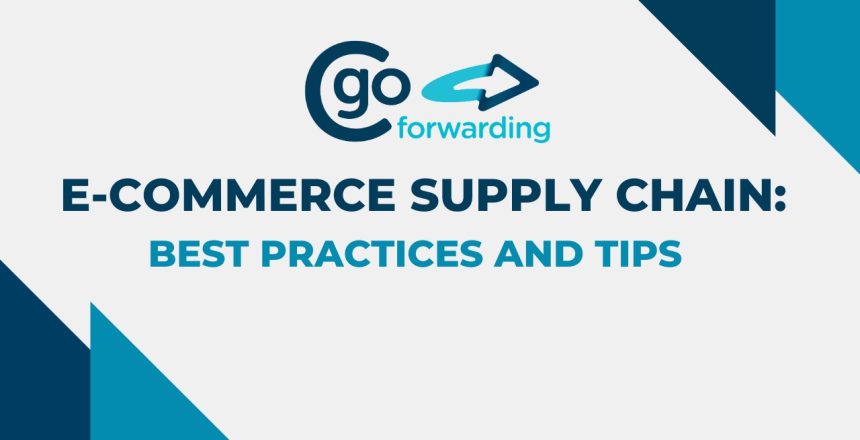The world of e-commerce has revolutionized the way businesses operate, providing a convenient and efficient platform for buying and selling goods online. However, behind every successful e-commerce operation lies a well-structured and optimized supply chain. That is exactly what we are going to talk about how to optimize the e-commerce supply chain.
What is the E-Commerce Supply Chain?
First things first, what is the e-commerce supply chain? In short, it encompasses all the processes involved in delivering products from the manufacturer to the consumer. It includes procurement, inventory management, warehousing, order processing, delivery, and sometimes even more steps.
Having an efficient e-commerce supply chain is crucial for the success of any e-commerce business. It directly impacts customer satisfaction, operational costs, and profitability. The goal of optimizing this process is to enable faster order processing, accurate inventory management, and timely delivery, all of which are essential factors in gaining a competitive advantage in the market.
Best Practices for Optimizing the E-Commerce Supply Chain
Here are some of the best practices for optimizing the e-commerce supply chain:
1. Improving Warehouse Operations
This may seem like a basic practice, but it is often underestimated. Optimize warehouse layout and storage methods to maximize space utilization. Adopting technology such as barcode scanning and warehouse management systems can enhance picking, packing, and shipping processes.
2. Streamlining Procurement Processes
Automate purchase orders and streamline supplier communication to reduce manual errors and improve efficiency. This can also lead to cost reductions in the long term. Implementing supplier performance metrics can help evaluate and enhance supplier relationships.
3. Implementing Inventory Optimization Strategies
Leverage data analytics to forecast demand accurately and avoid stockouts or overstocking, which can occur quite frequently. Utilize inventory management systems to track product movement, expiration dates, and demand patterns.
4. Enhancing Order Processing and Fulfillment
Automate order processing and invest in an efficient order management system. Integrate shipping and tracking functionalities to provide real-time updates to customers more quickly.
Supply Chain Flexibility and Scalability
A flexible and scalable E-commerce supply chain is crucial for adapting to changing market conditions and business growth. Some good practices are:
1. Building Strong Relationships with Suppliers
Don’t underestimate the power of strong business relationships. Maintain open lines of communication and foster strong partnerships with suppliers. This helps in negotiating better terms, ensuring timely deliveries, and collaborating on new product launches.
2. Collaborating with Third-Party Logistics Providers
Engage with reliable third-party logistics providers to expand your reach and access their transportation, warehousing, and order fulfillment expertise. This allows you to scale your operations without significant infrastructure investments. While finding competent third-party logistics providers may be challenging, it is worth the effort
3. Adapting to Changing Market Conditions
This is mandatory for all types of businesses that aim to be successful. In today’s markets, it is crucial to constantly pay attention to market trends, customer preferences, and industry dynamics to proactively adapt your e-commerce supply chain strategies. Being agile and responsive to changes helps you stay competitive and meet customer expectations.
If you are seeking a dependable and efficient solution to optimize your e-commerce supply chain, we strongly recommend reaching out to us for assistance. With our extensive experience, we can improve the competitiveness of your e-commerce business and help you achieve success. Take a moment to visit our website, and feel free to contact us for further information.
Web: cgoforwarding.com
IG: @cgoforwarding
LinkedIn: CGO Forwarding México
Email: mexico@cgoforwarding.com




